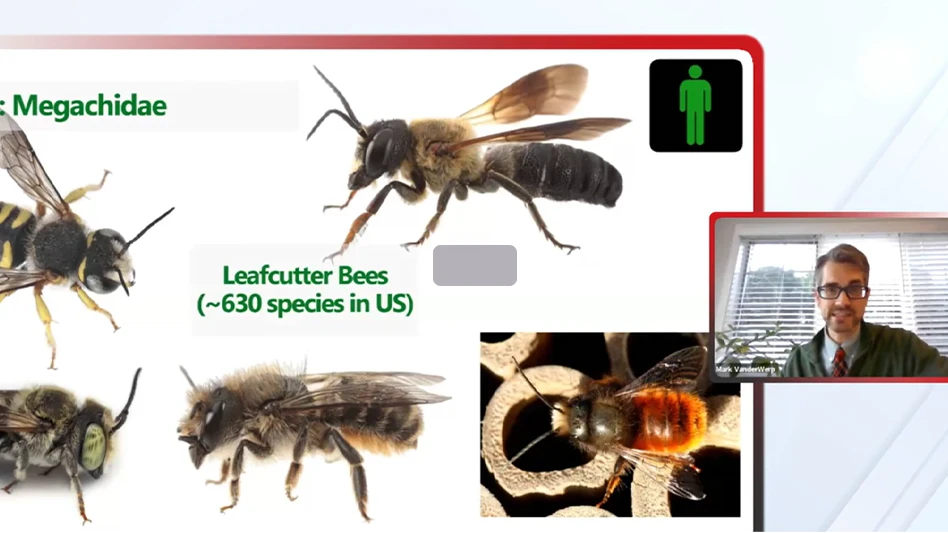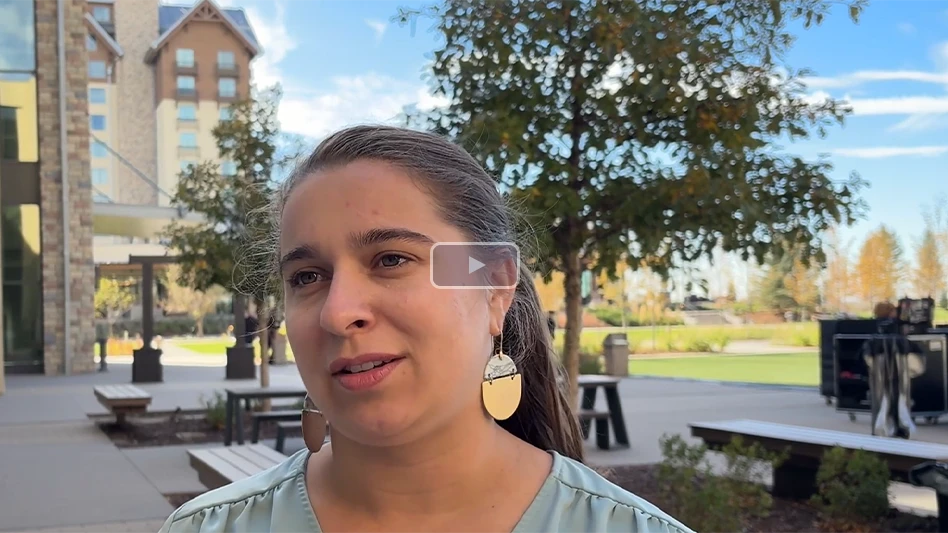| GET LISTED ON THE 2012 PCT TOP 100 PCT magazine is in the process of identifying the largest 100 pest management firms in the U.S., based on 2011 revenues. Please fill out the online form with information about your company and submit it to us by Friday, February 17. |
Editor’s note: May 2011 includes PCT’s Top 100 List, the annual list of the pest control industry’s 100 largest company’s based on year-end revenues (in this case 2010). CLICK HERE to download this year's list.
A few notes about this year’s list:
• The abbreviations on the list are as follows: * = estimated figure; n/a = no answer/unknown; NC = no change; % GPC = general pest control; % TC = termite control; % Other = other services (see next bullet point); % RES = residential; % COM = commercial; EMP = employees
• In the “other” category, services include turf and ornamental work, landscape maintenance, “home” services (i.e., handyman services, home inspections, carpet cleaning, insulation services, moisture remediation, etc.), fumigation, heat treatments, bird control, mosquito control, wildlife exclusion, etc.
• Companies in the PCT Top 100 list earned revenues of $4,996,409,782 in 2010, which was an increase of $230,363,239 from 2009.
• There are 30 states and three Canadian provinces represented in this year’s list. Florida has the most firms on the list (14) while California has the second most at 12.
• Revenues for the three Canadian firms on this list are reflected in U.S. dollars. The late-April exchange rate was 1.05 Canadian dollar to U.S. dollar.
• Terminix acquired Chino Hills, Calif.-based Antimite Termite and Pest Control and its Arizona affiliate, SOS Exterminating, in August 2010, so Antimite/SOS is not included on this list. Antimite/SOS’s revenues in 2009 were estimated to be $40 million, ranking the firm at #20 on PCT’s Top 100 List.
• Rollins acquired Waltham Services, Waltham, Mass., in July 2010 so Waltham is not included on this list. Waltham’s revenues in 2009 were $18 million so last year the firm ranked #33 on PCT’s Top 100 List.
• In December 2010, Atlanta-based Arrow Exterminators acquired Nader’s Pest Raiders of Ponte Vedra Beach and Fernandina Beach, Fla. Since this list reflects 2010 revenues, and Nader’s operated as a separate entity for nearly the entire year, it is listed separately from Arrow.
• This is the first time the revenues of Massey Services (#5) includes those of Middleton Pest Control, Orlando, Fla., which it purchased in December 2009.
• Visit PCT’s interactive map (http://bit.ly/pcttop100) to see company information and view live links to each of the Top 100 firms’ websites.
• This list was compilied by the PCT staff throughout the spring of 2011. E-mail PCT Editor Jodi Dorsch at
jdorsch@giemedia.com with comments about this list.
******************************************************
New to the List: EcoFirst Pest Control
David Royce, CEO of EcoFirst Pest Control (#51), is a man with national aspirations.
Last month, the company he founded just two short years ago announced it was opening new locations in Houston, Austin, San Antonio and Sacramento, giving EcoFirst a presence in nine states — California, Washington, Oregon, Arizona, Texas, Utah, Colorado, Kansas and Missouri — despite the country’s much-chronicled economic woes. "Pests don’t know there is a recession," he said.
A member of EPA’s Pesticide Environmental Stewardship Program, Royce has positioned EcoFirst as an "environmentally responsible" company, a message he believes resonates with modern-day customers. "We wanted to create a reduced impact service that took away the initial fear from the customer," Royce said. "Customers want to know that the professional servicing their home is using the most progressive products available."
Royce, 34, got his start in the industry working for another highly progressive company, Clark Pest Control (#10), Lodi, Calif. Following his sophomore year at Brigham Young University (BYU), Royce returned to his native California to work for the family-owned business. He had never sold pest control services before, but a college friend recommended that Royce give it a try. "He told me how much he was making and I didn’t believe him at first," he said. "I actually made him show me the check."
Sure enough, his friend was earning a good living, particularly for someone with limited sales experience. "I really respected Clark," he recalls of those early days in the industry. "I liked the pride they had in their company and the higher quality work they provided."
Upon returning to BYU the following year to earn his finance degree, Royce saw an ad in the college newspaper for a Dallas-based company called Moxie Pest Control. The company was owned by fellow BYU graduate Jason Walton, who sold Royce on the merits of moving to Dallas, as well as the benefits being an entrepreneur. Joining Moxie Pest Control proved to be one of the best decisions of Royce’s life.
While working for Moxie, Royce developed a close working relationship with Walton, putting his desire for an MBA and Wall Street aspirations on hold. "I had planned to pursue a career in investment banking," he recalls, but that all changed when Walton asked him, "Why don’t you start your own pest control company and I’ll mentor you? It was a total 180 from what I thought I was going to be doing."
Royce worked for Walton for three years, serving as vice president of marketing and recruiting sales personnel for the rapidly growing company. "It was a great opportunity to get into management at a young age," he says. "Jason became one of my best friends. I have always looked up to him and I do to this day."
When Walton decided to sell Moxie Pest Control to Terminix in 2004, he told Royce he would structure a deal so he could license the company name in Southern California — where his wife had recently enrolled in law school — for a modest ownership stake in the business. Royce took him up on his offer, growing the business over four years, before eventually selling to Terminix in 2008, just like his mentor. A year later, he launched EcoFirst Pest Control.
While there are similarities between the two companies, Royce’s new business model is resulting in much more rapid growth nationally, which explains why he modeled the company’s management structure after some of the largest pest control companies in the business. "My father was COO of several Fortune 500 companies," Royce said. "So I really try to run EcoFirst like a professional organization, having learned from his example."
While entering just its third year of operation, Royce said his business plan – like EcoFirst’s management team – is performing extremely well. "I did a bunch of financial modeling when I first put the business plan together. Every year we have met or exceeded my original expectations. It’s been a lot of fun," Royce said. "We’re trying to build a better company, not just a bigger one. Our goal ultimately is not to be the biggest, but the best at what we do. We’d love to have 50 to 60 locations across the U.S. in the next decade." — Dan Moreland X
******************************************************
What Recession?
Steritech Revenues
Reach $100 Million
Hitting the $100 million mark is cause for celebration no matter when it happens. But achieving that milestone in a year as fraught with economic challenges as 2010 merits a little curiosity as well. How did The Steritech Group crush its 2009 numbers to pull in $100 million in 2010?
"We deliver consistently on our promises," says Steritech CEO Mark Jarvis. "In the service industry, execution is the ultimate differentiator, and we are maniacal when it comes to execution. The recession has shown us that there is always room in the market for consistent, high-quality service. People are willing to pay as long as you deliver."
Based in Charlotte, N.C., The Steritech Group is the second-largest commercial-only pest prevention provider in North America. The company has steadily achieved double-digit growth in its quest for the nine-digit threshold, and hasn’t missed a beat where new market opportunities are concerned.
Case in point: Steritech launched the SleepEasy Thermal Chamber late last year, offering hotels, resorts, hospitals, colleges and other institutions an eco-friendly solution to bed bugs that gets their rooms back in service in as little as 24 hours.
"Bed bugs gave us a helping hand, pushing commercial volume up in 2010," says Jarvis.
How can other pest management companies reach this high level of financial success?
"Have a clearly articulated vision of what you want to be and then execute flawlessly," says Jarvis. "Figuring out what success looks like and repeating that again and again consistently is the magic." — Donna DeFranco X
******************************************************
Copesan and Abell Pest Control Part Ways
Copesan Services announced in early April that it will be ending its business relationship with Abell Pest Control (#13), Etobicoke, Canada. This action, which caught many in the pest control industry by surprise, involves the transfer of Copesan accounts to other Copesan Partners. At press time, the final transition was pending.
"Changing the fabric of our Partner network is never easy," Copesan President Deni Naumann said. "We believe this strategic decision is in the best interest of our clients and is crucial to our continued success in that it will allow us to fulfill our commitment of cohesive, consistent and exceptional Copesan account management and service to our clients throughout the United States and Canada."
Naumann told PCT that the decision was made to better serve Copesan clients.
"I think that Abell, having to cover all of Canada, they have had for a number of years their own electronic data collection system and some of their own tools," she said. "For their scope — being a national service provider in Canada — they put together the programs that best address what they’re providing across the whole country. For our clients, coming from the U.S. with Canadian locations, we want to ensure that there is the same program in place...that the same electronic collection tools and trending reports are also used in Canada. And there was not that consistency."
Abell Pest Control joined Copesan in the late 1980s after Copesan ended its business relationship with PCO Services of Canada, which was purchased by S.C. Johnson in 1987. At that time, Abell was a smaller, regional pest control company, with annual revenues in excess of $4 million (Canada dollars). During the last 15 years, Abell has experienced rapid growth and now services Canada from coast to coast, as well as the Great Lakes region of the U.S., and other strategic U.S. locations. Abell’s annual revenues now exceed $50 million (Canada dollars). John Abell, president of Abell Pest Control, told PCT that because of this growth Abell no longer "really fit the profile of a Copesan company."
"We’ve evolved from being a complementary service provider for Copesan to, in essence, being a competitor to Copesan," Abell said. "We dominate on the national scene in Canada, so our dependency on Copesan has diminished to the point where the revenue stream that we would derive from Copesan represented less than 1/5 of 1 percent of our revenues — less than $10,000 [Canada dollars] a month. So I think it has evolved to the point where [Abell leaving Copesan] was almost mutual."
Abell likened this decision to Copesan ending its business relationships with Western Pest Services (purchased by Rollins in 2004) and J.C. Ehrlich (purchased by Rentokil in 2007). "You could say that our personal growth and evolution has resulted in the same outcome," he said. — Brad Harbison X
******************************************************
The Jacksonville Four
What’s in the water in Jacksonville, Fla.? Four of this year’s Top 100 companies are based in Jacksonville, where there are certainly plenty of pests to go around, but is there really enough business to sustain four large companies? A closer look reveals that three of the four operate beyond the Jacksonville region and, in fact, beyond Florida, so although they each take their piece of Jacksonville, none of them is so heavily concentrated as to dominate the market there.
How have these Jacksonville businesses managed to maintain or increase their sales in the face of the recent economic unrest? They’ve taken a variety of approaches.
"We’ve adopted a new strategy, focusing on growth from a density perspective rather than a geographic one," says J. Bryan Cooksey III, president of McCall Service (#65). "Basically, we analyze revenue per ZIP code to determine which areas are strongest for us. Then we bolster our sales and marketing efforts to those targeted areas. Where our coverage is light, we subcontract the accounts or pull out completely. We actually made the strategic decision to pull out of Atlanta, where we had been since 1979, because we realized we were spending 80 percent of our time on 20 percent of our issues. It was one of the best moves we ever made. Building more density within our existing footprint — and making acquisitions when the circumstances are right — will be key to our growth going forward."
Turner Pest Control (#61) adopted a strategy when it changed ownership in 2002 that put it in a better position to weather the storm. President Mark Slater explains: "At the time the company was purchased, its revenue was 30 percent recurring business and 70 percent nonrecurring. In the past eight years, we’ve reversed those numbers. By focusing on ongoing pest control, we’ve grown revenues from less than $4 million to $9.35 million."
Turner was fairly heavily invested in the pre-construction market when the housing market crashed, though, so it took a lot of effort to offset the downturn. "We were doing about 6,000 residential pretreats a year," Slater reports. "They’re not building 6,000 houses in the entire city now. We started an aggressive campaign to grow our residential customer base, upping our advertising expenditures from 3 percent of revenues to 8 percent, networking with Realtors and other organizations, and basically pounding the pavement."
Another major networker is Bug Out Service (#41), which tops the list of Jacksonville companies in terms of revenue ($14 million). President Paul Felker says that his firm, which operates within a five-county area in and around Jacksonville, is active in its local communities. "We understand the issues that concern our neighbors and customers," he says. "For example, we know how important environmental responsibility is to Jacksonville residents, so we offer low-impact alternatives to protect homeowners’ properties as well as the St. Johns River."
Felker reports that Bug Out has been aggressive in terms of both marketing and pricing the past few years, heeding the need to reach out to customers and prospects with a new level of enthusiasm and understanding. Jessica Miner, president of B&B Exterminating Company (#91), echoes his sentiments.
"In times like these, it’s even more important to work closely with your customers," Miner says. "Homeowners are dealing with all kinds of financial pressures, so we try to arrange terms they can manage. We’ve become very active in the community, too, doing trade shows and building customer relationships face to face. When people get to know us and see the level of commitment we bring to our service, it builds loyalty. They know we’ll do anything to earn and retain their business, and they appreciate it."
If anything good can be said about the recession, maybe it’s that pest management companies not only in Jacksonville, but around the country, have been developing and sharing ideas and innovations that are helping to revitalize our industry. Cooksey says that McCall definitely benefits from learning the best practices of others. In particular, McCall’s relationship with Copesan provides a wealth of ideas.
"Being part of the Copesan network has opened our minds and helped us change the way we think," Cooksey said. "You can learn a lot from interacting with others who are out there doing what you’re trying to do. We stay on the leading edge of technology and best practices — very strong tools in a difficult economy." — Donna DeFranco X
******************************************************
New to the List: Bulwark Exterminating
For nearly two decades, the migration of retirees and other warmth-seeking Northerners to the Sun Belt was as predictable as death and taxes. New construction reached record highs and fueled a variety of industries, including pest management. Pest management companies thrived as the market expanded, seemingly without end. Many invested heavily in the pretreatment market segment.
Not Adam Seever, president of Mesa, Ariz.-based Bulwark Exterminating (#31), which serves 11 cities in the Sun Belt, Seever foresaw the housing collapse and opted to focus his energies on retaining his established customers and market share rather than relying on the influx of new-construction business he predicted would grind to a halt at any moment. He didn’t believe in making investments in the pretreatment market.
"It was a gamble not chasing the new business, but I’m familiar with the dynamics of the economy, and I knew the growth couldn’t continue indefinitely," said Seever, who holds a degree in finance and statistical analysis. "It worked out for us. We’ve managed to keep our numbers steady (around $19 million) for the past three years, and I expect to see modest growth in the coming years."
Committed to Employees, Customers. Seever’s approach to strengthening his 12-year-old business began with the development of metrics to assess his employees’ performance. Those who scored among the top 80 percent were awarded bonuses to encourage them to continue providing top-notch service and set the pace for the rest of the team.
"Satisfied employees create satisfied customers," Seever says, "and we all know that it’s cheaper to retain an established customer than to win a new one. So I redirected a significant portion of our budget and efforts from marketing to employee satisfaction."
Those efforts also included supplying each technician with his or her own Smart phone, equipped with an application developed exclusively for Bulwark. It enables technicians to interact with the company database from the field, minimizing the technician’s need to come to the office.
"We’ve saved thousands of miles and a lot of our team’s time, because now they need to come in only once a week. I respect their time, and they appreciate that. We’ve built a culture that supports and nurtures employees. They’re inspired to provide great service and to smile when they visit customers," says Seever.
While many pest management companies have either folded or sold their operations in the economic turmoil of the past three years, Bulwark stands among those that remain steady and focused on the future.
Seever added, "When you know that you’re up against market challenges — that you aren’t going to be able to expand through the routes that got you where you are today — you need to focus on what you can change. Don’t let obstacles stifle your creativity. Invest in your people; they’ll come through every time." — Donna DeFranco X
******************************************************
New to the List:
Pacific Coast Termite
A recent success story in the pest control industry is Pacific Coast Termite (#49), which is based in Southern California (Tustin, Calif.) but has expanded to cover the entire state. The company, which was formed in 2007, grew its 2010 revenues 43 percent from the previous year despite the fact that California is one of the areas of the country most devastated by the recent economic recession.
"One of the big things that [co-owner] Dennis [Wilson] and I did when we started the company was to not tie ourselves into the real estate market," said James Grande, co-owner, Pacific Coast Termite. "We have targeted homeowners who want to stay in their homes and upgrade their homes and that has been successful for us. So, when the housing market crashed and homes began going into foreclosure, we were not affected one bit."
Instead, Pacific Coast has stayed true to its strengths. Wilson credits the company’s rapid growth to "word of mouth" referrals and excellent ratings from review bureaus such as the Better Business Bureau. "We’ve been able to hire and train quality people who present a really professional image," said Wilson, who added that Pacific Coast has hired several employees formerly in the grocery business.
Another reason for the company’s accelerated growth in recent years has been a more targeted and streamlined advertising campaign. Wilson and Grande have invested significant time and resources into tracking where, what and when to invest the company’s advertising dollars. For example, the company now decreases its advertising in winter months and summer months.
Wilson, age 46 and Grande, 37, started Pacific Coast in 2007 after both worked in the grocery business on the management side. "We went from really good paying jobs to taking a risk," Wilson recalled.
While most start-up pest control companies offer general pest control and then may add termite control, Pacific Coast has limited itself to termite control and related ancillary services such as wood repair, TAP insulation and rodent exclusion. This business model has served Pacific Coast well and Wilson said the company is well positioned for future growth. "In fact, through the first three months this year we are 33 percent ahead of last year," he said. — Brad Harbison X

Explore the May 2011 Issue
Check out more from this issue and find your next story to read.
Latest from Pest Control Technology
- Winter Insects are Cool
- Nancy Troyano on Pi Chi Omega's Jr. Entomology Program Bringing Applied Science to Youth
- Tick-Killing Fungus Research Underway at Nova Scotia University
- VAGA Hosts 8th Annual Veterans Thanksgiving Appreciation Dinner
- Happy Holidays from PCT Media Group!
- Rentokil Terminix Expanded in Key Markets with 2024 Acquisitions
- In Memoriam: Joe Cavender
- Certus Acquires Green Wave Pest Solutions





